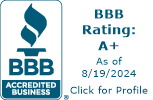There are a lot of articles in the news discussing the ingredients of food (baby formula in particular), pet food and other consumer goods. Many people are “experts” at reading the ingredient list for their food, but pay little attention the the insurance products they purchase. That is, until there is a claim that is not paid and they find they are not covered, or at least not covered to the extent they thought.
The media also focuses on the cost of health insurance, and rightfully so. Individual and group health insurance in Colorado is a major purchase that can cost well over a $1,000 per month for a family in some cases. Like any other large purchase, it pays to research what you are buying and to understand the trade-offs between cost and coverage as well as the differences between copay and HSA qualified plans. Here is a synopsis of the two general types of personal health insurance available on the market in Colorado today:
Copay
Copay plans are the most popular plans we offer and are the most common type of coverage available in the individual health insurance market. Copay plans allow you to pay a specified fee for certain medical services or for each prescription. For example, you may pay $20 for an office visit or $10 to fill a prescription and the health plan covers the balance of the charges. (1) A fee that many insurance plans require an insured to pay for certain medical services (such as a physician’s office visit). These plans typically also include a deductible, which can range from $500 to $5,000 per individual on the plan and coinsurance, which is a specified percentage of the cost of treatment the insured is required to pay for all covered medical expenses remaining after the policy’s deductible has been met. Coinsurance percentages usually start at 80/20 where the insurance company would pay 80% of a large medical claim.
High Deductible – HSA (health savings account) Qualified Plans
A Health Savings Account (HSA) is a tax advantaged plan that allows people with HSA qualified health insurance plans to set aside money each year for future health care costs. HSAs provide a number of unique benefits, including:
- Tax-deductible contributions
- Tax-free earnings
- Tax-free distributions
- Portability as beneficiaries can take assets from job to job and into retirement
- Withdrawals for qualified medical expenses are tax-free
- Withdrawals after age 65 for any purpose are penalty-free
While each catagory of coverage has its strengths and weaknesses, it is also important to understand that plans vary both among different insurance companies as well as within a particular insurance company’s offerings. In order to adjust coverage (risk) and costs of a plan, insurers offer a variety of pricing options for copay visits to the doctor, deductibles and coinsurance. In addition, coverage for specific injuries and illnesses vary in both whether they are covered at all (e.g. maternity and mental health) or in the amount of coverage available.
The bottom line is, it pays to do your homework. Many times, insurance is purchased based on the monthly cost, rather than on the content of the policy. Once you have obtained quotes and narrowed down the type (copay or HSA qualified) plan you need and the general insurance company or specific plan in which you are intersted, you can request a “plan description” that will provide you with a more detailed description of that plan and allow you to really understand what is, or is not covered. This will allow you to get the best coverage for your money and to really understand what you are buying and to make sure you are aware of your financial exposure in the event of a large health insurance claim, since your real goal is to find a plan that allows you to protect your health and financial well being as well as possible!





